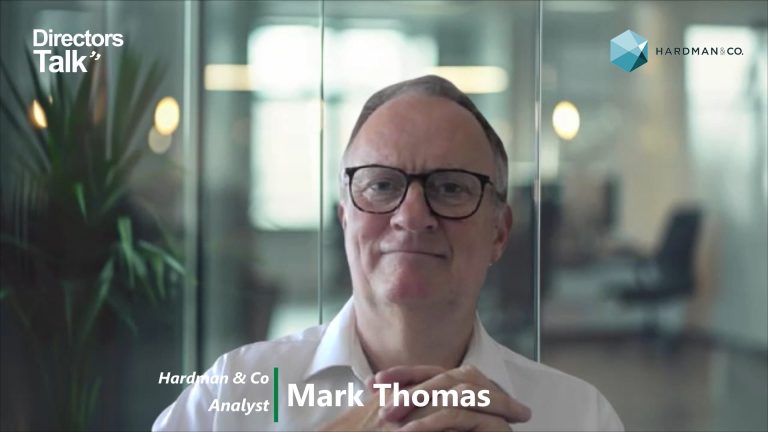ICG Enterprise Trust plc (LON:ICGT) is the topic of conversation when Hardman & Co’s Analyst Mark Thomas caught up with DirectorsTalk for an exclusive interview.
Q1: Your recent report on ICG Enterprise Trust sits behind a disclaimer. What can you tell us about that?
A1: It is just the standard disclaimer that many investment companies have. In essence, for regulatory reasons, there are some countries (like the US) where the report should not be read. In the UK, because private equity (PE) is not a simple asset class, it should only be looked at by professional/qualified investors. Page 2 of the report gives all the details.
Q2: Can you give us a brief summary of your report ‘CM day 2024: defensive growth value creation’?
A2: The key messages from their June 2024 shareholder seminar were i) the trust has a focused and differentiated investment strategy with a dedicated investment team, ii) operating performance remains strong and capital structures are well positioned, iii) debt pricing is reducing and debt availability is accelerating, iv) access to the ICG platform brings substantial benefits, and v) the board has a focused and deliberate approach to long-term shareholder value.
In our view, what defines their uniqueness is the defensive growth approach, combined with the ICG manager benefits. This has delivered five-year, local currency portfolio returns of 17.1% CAGR, NAV p/sh. returns of 14.6% and shareholder total returns of 11.2%.
Q3: So, how is value created?
A3: ICG Enterprise Trust adds value with i) an investment strategy delivering defensive growth through cycles, the key, in our view), ii) a managed cost base, with a management fee rate cap and ICG cost-sharing arrangement, iii) a balanced capital allocation, and iv) effective messaging/shareholder engagement.
Just looking at defensive growth for a moment, their focus is on growing, profitable businesses and well-established managers. This has seen investee companies deliver mid-teens’ EBITDA growth over the long term. Crucially, there has been great consistency of performance, which materially enhances compounding, and we estimate its EBITDA growth since 2010 has been more than 4x the UK market. FY’24 results prove both resilient and well-diversified investments.
In terms of the higher-rate environment, the bottom line is that its partner GPs’ target returns are unchanged. We detailed in previous notes how both organic and inorganic EBITDA growth opportunities combine to offset the pressure of higher rates. It is worth remembering that, over the long-term investment horizon of PE, financing costs are just one of many variables the managers face.
Q4: The Capital Markets day had a whole section on the PE financing market, how would you summarise that?
A4: Key market takeaways were:
Firstly, leverage in each investee company is bespoke to that company’s cashflows and ability to pay.
Second, PE backers have access to the whole finance market, which standalone businesses rarely do. This increases the availability of finance and lowers its cost. In recent months, debt finance has become increasingly available and at lower prices. PE backers have responded to the higher rates by making greater equity contributions and therefore reduced balance sheet leverage.
The bottom line is that there is a proven track record of lower-than-market default rates, and as I said, target returns going forward are unchanged.
Q5: Everyone is talking about their capital allocation, what is ICG Enterprise Trust’s approach?
A5: The trust’s approach to shareholder distributions includes a progressive dividend policy – FY’21 24p, FY’22 27p, FY’23 30p, FY’24 33p – a long-term share buyback programme, £24m returned with 128 days in market Oct’22 to 13 Jun’24, and opportunistic buyback, over £7m in 2024.
Q6: And the risks?
A6: Most of the PE sector is trading at a discount as investors have been worried about the realism of the NAV and the prospects for PE in a higher rate/recessionary environment.
We have addressed these concerns directly in previous notes believing the NAV to be realistic, resilient, and explaining how the model adds value through all economic conditions.
PE is an above-average cost model, but post-expense returns have consistently beaten public markets. Their permanent capital structure is right for unquoted/illiquid assets.





































